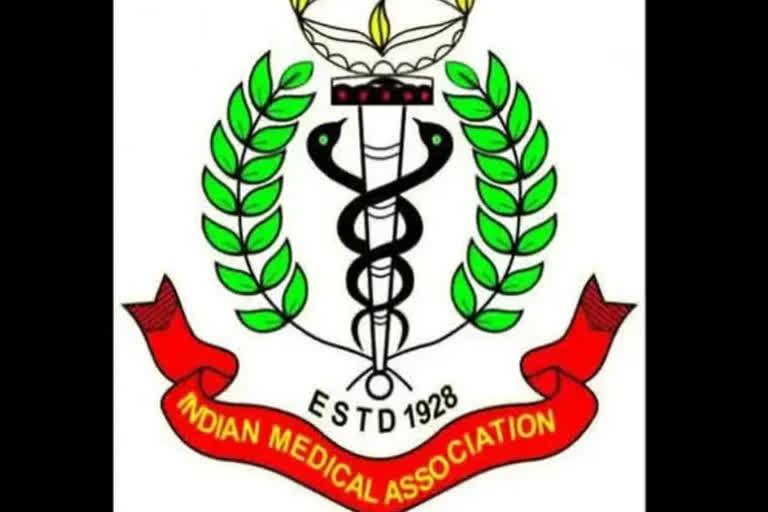New Delhi: Admitting the fact that the Covid-19 pandemic has dealt a severe blow to India's healthcare sector, the Indian Medical Association (IMA) has suggested to the Central government for rationalisation of tax and tax rates, GST, policy professional interventions, fund allocation for migrant workers as well as practical solutions for Ease of Doing Business in the country's health sector.
In a seven-page recommendation submitted to the Health Ministry, IMA president Dr Sharad Kumar Agarwal and secretary general Dr Anilkumar J Nayak have highlighted 12 key factors to promote India's healthcare delivery system. A copy of IMA's recommendation letter in possession of ETV Bharat said that India's poverty and health sector is one of the key points that needs much more attention.
"With 228 million, India continues to have the biggest proportion of the world's poor. It is estimated that 150-199 million additional people have fallen into poverty at the end of 2022. Every year 2.4 per cent of the population goes below the poverty line because of catastrophic healthcare expenditure," Agarwal said in a recommendation paper.
Asserting that the Covid-19 pandemic experience has a strong case for declaring health as a fundamental right, Dr Agarwal said, "IMA feels the opportune time to do so has arrived. It is expected that the Government of India will be able to take this monumental step. Universal access to health, including safe water, sanitation, nutrition, primary education as well as eradication of poverty is cornerstones in the path to wellness of a society and nation."
Highlighting the issue of universal health care, the IMA said that for such a universal health care system to be realised, a tax-based system of health financing is essential. "Every citizen should be entitled to essential primary, secondary and tertiary health care services that will be guaranteed by the Central government. Citizens should be free to supplement free-of-cost services (both in-patient and out-patient care) offered under the UHC system by paying out of pocket or directly purchasing additional private voluntary medical insurance from regulated insurance companies," the IMA said. The association also suggested investment in the healthcare sector.
Also read:Budget 2023: What’s in it for States in the Union Budget?
"Health policy 2017 promised GDP in healthcare of 2.5 per cent by 2025. But the increase in healthcare has been negligible and still hovers around 1.1 per cent of GDP. Of the healthcare expenditure of Rs 89,000 crore for last year, a major chunk of Rs 83,000 crore is revenue expenditure. Capital expenditure is only Rs 5,630 crore," the IMA said. It said that a substantial increase in capital expenditure is required in the proposed budget to make a meaningful change.
The IMA has suggested prioritising the primary health care system. "The Covid crisis has amply demonstrated the importance of universal primary care in the public sector. The government should appoint MBBS doctors in the 1,50,000 wellness centres. The health policy 2017 recommends that health centres be established on geographical norms apart from population norms," the IMA said.
Referring to Ayushman Bharat Pradhan Mantri Jan Aarogya Yojana (AB-PMJAY), the IMA said that funds of AB-PMJAY should be used exclusively for the private sector for strategic purchases and to create a retainer system and not for critical gap funding of government hospitals. The IMA has also suggested GST and other taxes for healthcare services. "The government should conceive zero rate GST on health-care services, allowing service providers to claim Input Tax Credit. As GST is not payable on healthcare services, service providers are not eligible for the input tax credit. Enabling this would ensure that input taxes are not added to the cost of the services and will provide some relief to the patients," the IMA said.
It further said that income tax and TDS may be waived on money received from government schemes like Ayushman Bharat and other State schemes since the pricing of the schemes is less than the cost incurred. The IMA also suggested social security system, working capital and preferential funding, elderly care, Indian Medical Services and protecting the middle sector. The IMA also appealed to the government to especially look into the concerns of the migrant workers.
"Indian society and its national government as well as various State governments need to understand and address problems of vulnerable interstate migrant workers who are seen across both rural and urban areas in India. Special fund allocation to cater to the health needs of migrant workers is urgently required," the IMA said.
